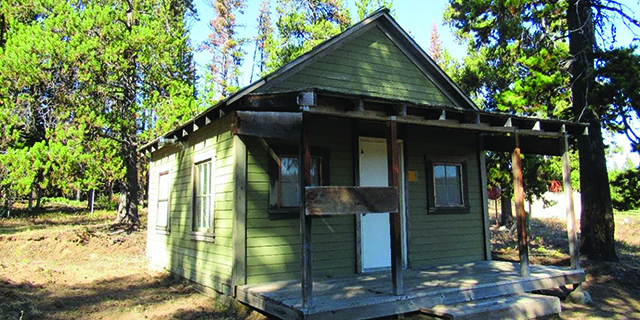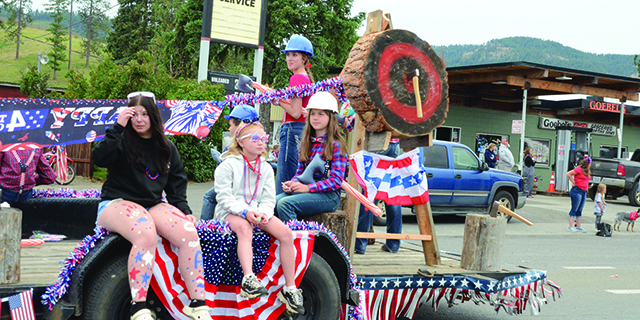A world of change for women
Published 10:12 am Tuesday, July 17, 2018
When I was a boy, I learned that there was often a “strong woman behind the man.” President Eisenhower had Mamie; Harry Truman had Bess and FDR had Eleanor before him.
Our rising hero, John Kennedy, had the beautiful and smart — she spoke French — Jacqueline. But the leaders — presidents, generals, CEOs, superintendents, doctors, lawyers, airplane pilots, ministers, downtown business leaders and family providers — were men.
Trending
Women who worked were nurses, teachers, stewardesses, librarians, secretaries — the handmaids and helpers. In homes where there was money enough from the father’s work or family wealth, women stayed home and took care of children, had hot meals and drinks waiting for working dad and volunteered their time at schools and libraries, served as Cub Scout Den leaders and led the PTA and the League of Women Voters.
When I was a boy, women in the United States had not had the vote all that long; I was born in 1942, just 22 years after the 19th amendment to the Constitution gave them that right. When I was a young boy, women rose to work during World War II, and were sent home after it was over.
But many women had a taste and a talent for it, and many of them suffered through the ‘50s and ‘60s — the “valium generation,” as one of my women friends terms it.
The “cool” girls in my high school class of 1960 didn’t play sports. None were offered. They could be cheerleaders and did not go to college but found slightly older boys with cars and jobs to marry. (Many of them, to their credit, eventually became business and community leaders.)
But others in my high school class — maybe reflecting their mothers’ WW II experience — did go to college and gain professional careers.
And the women in my college class of 64 who still did not have sports teams to join and were discouraged from becoming doctors and scientists and expected to be nurses and teachers, became leaders in the women’s rights movement.
Trending
In 1972, when the country was still embroiled in Vietnam and school desegregation plans mandated by Civil Rights legislation, Congress approved Title IX as an amendment to the Higher Education Act of 1965. The world for women in this country changed, more accurately was sent on a new course.
Title IX was not just about sports, although it changed athletics in high schools and colleges emphatically; it said that all educational programs with a dime of federal money in them would be equally available to men and women.
There were women doctors in the 19th century, some who dressed and passed as men; there were women scientists before Title IX, many of them working alongside their husbands who got the paychecks from colleges.
And although they had to overcome severe quotas at professional schools, a few 20th century women had earned doctorate’s and master’s degrees, and made it past the bar to become attorneys. But Title IX opened the doors.
It opened the doors to new work and to re-examinations of the past. All of those presidents and their first ladies? The press had covered up and the public winked at Ike, FDR and JFK’s other women.
Civil rights and women activists brought congressional infidelities to light, and historians found President Jefferson’s other black family.
Public disclosure, court cases, and #MeToo are bringing famous women, “traditional” housewives and students together in a chorus aimed at stopping the dark side of male dominance, aggression and exploitation.
Bill Cosby, Matt Lauer, Bill O’Reilly, and Harvey Weinstein lead a parade of famous and discredited men, slinking off the stage behind lawyers, payouts and occasional criminal convictions.
A New York Times writer, Thomas Edsall, says that there has been a growing gender gap in politics as women have gained voice and men have become fearful of losing power.
A recent poll found that men of all races approve of how Trump is handling the job by 54-45, while women of all races disapprove, 65-32. He cites Trump supporting consultant, Alex Castellanos, who says that Trump “is fighting to preserve not just manly strength but gender itself, the cultural differences between male and female. The other side is seeking to overthrow the patriarchal hierarchy that has run the world since we lived in caves.”
My own hope for the future is in the local. In Wallowa County, men and women have embraced girls sports, and most of us are, I think, fine with women commissioners, doctors, lawyers, judges and business leaders; we vote for them, hire them and use their services.
But votes are close, and I am sure that some of my neighbors who read this pine for the days when women were behind the men, and the preachers and doctors were men.
To you: think about your daughters and granddaughters and the doctor who treated your wounds.
Columnist Rich Wandschneider lives in Joseph.









